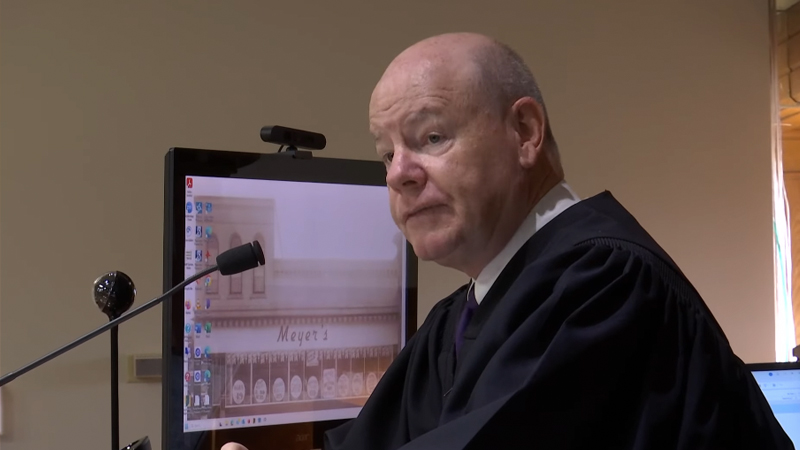
A British mother spent her life savings to win a battle to protect her disabled son from the COVID-19 mRNA vaccines, but the court’s decision avoided ruling on the “crux of this issue,” according to medical commentator John Campbell, Ph.D.
“How could it be that the state could override a mother [and] order to have her child vaccinated?” medical commentator John Campbell, Ph.D., asked on a recent episode of his YouTube show.
Campbell discussed the recent legal victory, reported in The Telegraph, of a British mother whose disabled 24-year-old son had a chromosomal abnormality that experts testified put him at greater risk for heart damage from the COVID-19 vaccine.
In 2021, the mother, who goes by the pseudonym “Sarah,” did not want her son “Tom” to get the COVID-19 vaccine given the risks posed to someone with his condition. Yet, doctors and social workers demanded he be vaccinated for the “greater good of society.”
After a three-year court battle, where Sarah spent her entire life savings of 25,000 pounds, plus an additional 65,000 pounds she raised through crowdfunding, she won the case to protect her son from vaccination.
Campbell said when Sarah described the saga as a “Kafkaesque nightmare,” she was right because, in Franz Kafka’s novels, isolated protagonists typically face “bizarre or surrealistic predicaments and incomprehensible socio-bureaucratic powers.”
When she resisted the state’s orders for her son, Sarah was threatened with jail, arrest, asset seizure and having her son removed from her home to be forcibly vaccinated.
In the eyes of the state, Sarah said:
“I went from being a loving mother and Tom’s sole carer to a near criminal. I’ve been made to feel like a liar, a bad person and a fanatic.
“I was wrongly accused of being an anti-vaxxer just for questioning whether this new gene therapy was right for my son in his complex conditions.
“To me it was the state that was fanatical about its policy by bringing its might to bear upon me — the power of the state versus Sarah.”
Tom, severely disabled, was cared for by his mother. However, he was 18 when the government decided to vaccinate the “most vulnerable,” so he was assigned an attorney to act in his “best interest” and who advocated for him to be jabbed.
Sarah fought the case for three years. First, a judge ruled Tom should be vaccinated — despite conceding the court was “ill-equipped” to say if the vaccines were safe — because taking the vaccine was “altruistic” and required of all citizens.
Campbell said the decision ignored the specific and personal risks to Tom. “I would have thought an alternative strategy for that judge would be to err on the side of caution … but what do I know?”
Campbell said people affected by trisomy conditions like Tom’s — which include Down Syndrome and Edwards Syndrome — should be informed that expert testimony during the trial suggested they could be at increased risk for heart problems from mRNA products.
An appellate judge ruled this month that it is “no longer” in Tom’s best interest, given the “changing landscape of the virus,” and “increasing immunity.”
Campbell said the court’s conclusion was problematic because it leaves open the possibility that, during the pandemic, it would have been right to vaccinate Tom. The ruling “doesn’t really address the crux of the issue,” he said.
“The uncomfortable issues of the state ordering a mother to do something she doesn’t want to do to her child to me is the fundamental issue,” he said.
Although the outcome in the case was good, it doesn’t get around the fact — laid out in The Hope Accord — that during the COVID-19 pandemic period, “fundamental and cherished principles of medical ethics were disregarded on the premise of an emergency.”
BOMBSHELL: Secret Service Told To Stand Down In Butler, Pennsylvania, Says Trump Event Head




